Fundraising can wrongly be perceived as difficult for junior staff members, who don’t have as many so-called ‘friends in high places’ than their senior counterparts. Yet, the following case studies from two fantastic staff members at Employment Office, a long-term participant of Tour de Office, reveal that you don’t have to be a Founding Director or CEO to be a top fundraiser. In reality, a number of this year’s most successful fundraisers in Tour de Office were entry to mid-level professionals. So how did they do it? Read on to be inspired by the fundraising superstars themselves.
A little competition goes a long way- Jemma Payne – Top Fundraiser at Employment Office
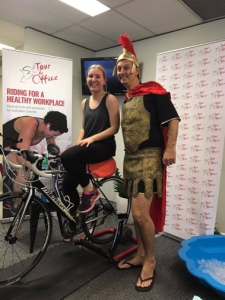
Jemma had never fundraised before but ended up taking out the title of the top fundraiser at Employment Office, raising $871 for the mental health charity Stepping Stone Clubhouse. What was her secret? It’s simpler than you might think. A few friendly pokes at her friends and family to fundraise, and encouraging a little donor-competition went a long way.
What motivated you to fundraise?
Raising money for such an important cause was my key motivator. Mental health is something that impacts all of us at some stage, directly or indirectly. You can’t see mental illness – it’s something that many people struggle with, without others noticing. That really made me want to raise awareness and fundraise.
What is your fundraising strategy?
I had never fundraised before, so I had no strategy going into it! I simply shared the link on my Facebook profile and was amazed at the generosity of my friends and family. I did send a few messages to certain family and friends, telling them it was compulsory for them to donate… And I also started a competition between two uncles to see who could donate more and therefore be the favourite uncle! (John donated $100, Robbie donated $101 to take the title!)
What’s your advice for fundraising?
Put yourself out there and share what you’re doing for charity across your social channels – even on LinkedIn! Don’t just limit yourself to Facebook. You could also talk to your workplace about updating your email signature to include a bit of information and a link to your fundraising page.
I know people don’t like to ask for money, but don’t be afraid to annoy your family and friends! When it’s for a good cause and one that is close to many people, you’d be surprised by the level of support from those around you.
Face-to-face Communication is Key– Karon Beattie, Among the Top Fundraisers at Employment Office
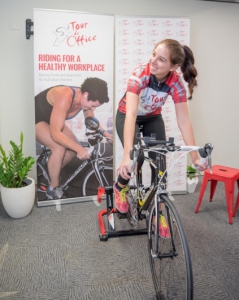
Karon Beattie raised a fantastic $690 for Stepping Stone Clubhouse simply by talking to those close to her about why mental health is so important to her.
What motivated you to fundraise?
I am a big advocate for mental health awareness and understanding and was really moved by Stepping Stone’s commitment to supporting members of the community with mental illness achieve their goals. I actually find it really challenging to ask people to sponsor things for me (no-one wants to be “that person!”), but when it was a cause I really cared about, I wasn’t afraid to reach out at all.
What is your fundraising strategy?
I don’t have a huge network of friends, but I do have some very close friends and family who I felt comfortable approaching for donations. I didn’t go to town with a generic message, but actually just took the time to talk to people about the charity, what it meant to me, what my target was and what I needed from them. What also helped was that my friends are generally really good people, and don’t hesitate when it comes to supporting a good cause!
What’s your advice for fundraising?
Be authentic – I’m not a fan of sending a generic message. Why would they make the effort to donate if you haven’t made the effort to really talk about what you’re doing and why it’s important? Also, be conscious that not everyone is in a position to donate right away and you may have to follow up. I would usually find this really difficult to do because I’m pretty low maintenance and don’t like to push things, but I don’t feel guilty about it when it’s on behalf of an organisation that really needs it.
Believe what you’re doing is going to make a difference. It doesn’t take a huge amount of effort on your part to help out, and those donations will be of a big help to organisations like Stepping Stone!
You can be a top fundraiser and make a real difference to those in need too.
As a young professional, it’s not uncommon that many of your friends will be at university and thus, won’t be in a position to donate large sums of money – and that’s okay! Ultimately, many small donations will have the same impact, if not more, than a few large donations. By reaching out to your network, and asking even just for small change, you won’t only reach the fundraising target equal to that of a senior, but you’ll spread the word about your charity to many more people in the process. Good luck for your next Tour de Office event!

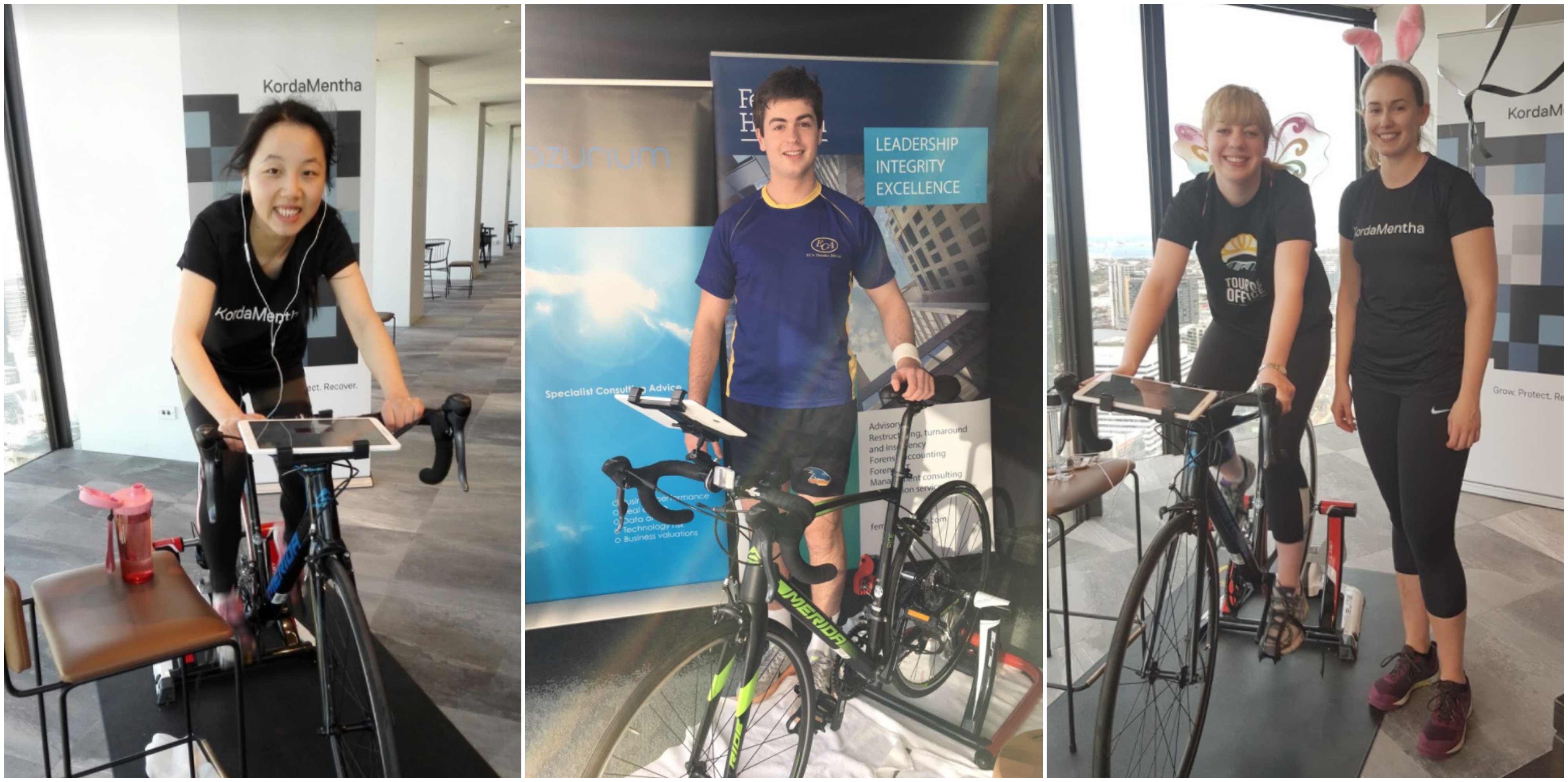
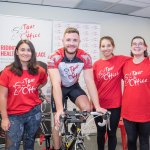
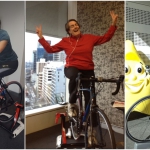
Leave a Reply
Want to join the discussion?Feel free to contribute!